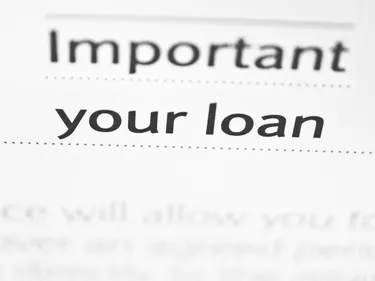
The Equal Credit Opportunity Act is a federal law that prohibits lenders from using discriminatory practices when dealing with current and potential borrowers. To comply with this act, credit reporting companies developed a set of codes that allow the company to categorize borrowers that does not reveal information that might be used for unlawful discrimination.
Equal Credit Opportunity Act
Video of the Day
The Equal Credit Opportunity Act prohibits lenders from discriminating against a borrower based on the person's race, religion, color, national origin, marital status, age, sex or whether you receive public assistance or welfare. The creditor can ask you to disclose this information on a voluntary basis, but this is generally used to help enforce anti-dscriminatory practices.
Video of the Day
Credit Report
A credit report is a collection of information that companies collect about an individual consumer's pattern of credit behavior. Whenever you apply for a loan or pay a bill, this gets recorded on your credit report. To ensure the report does not contain information that can be used to illegally discriminate, different companies use different kinds of codes to provide lenders information without taking into consideration prohibited factors.
Codes
Companies use a variety of different ECOA codes, though each of them generally conveys the same kinds of information. For example, ECOA codes often include different letters. An "I" on an ECOA code means the account is an individual account held under only the debtor's name, while a "J" means the account is held jointly with another debtor. A "T" means the account has been terminated or canceled, while an "M" means the account has a co-signor.
Inspection
You can view for yourself the ECOA codes on your own report. You have the right to view your credit report every year free of charge by visiting the website authorized by the Federal Trade Commission to disseminate this information to consumers: AnnualCreditReport.com. If you see an error on your report, you have the right to contact the credit agency that made the error and demand the information be changed or removed.